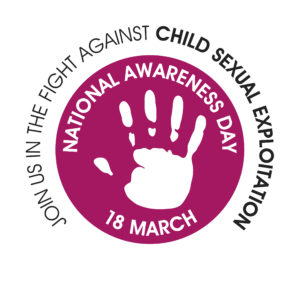Could you spot the signs of child exploitation?
 Published: 18th Mar 2022
Published: 18th Mar 2022
The campaign, led by the National Working Group (NWG), also encourage everyone to think, spot, and speak out against abuse.
The National Child Exploitation Awareness Day, held annually on 18 March, aims to highlight the issues surrounding Child Exploitation (CE).
Child Exploitation (CE) is a form of abuse that involves the manipulation and/or coercion of young people under the age of 18 into sexual or criminal activity.
National Child Exploitation Awareness Day aims to highlight the issues surrounding Child Exploitation and calls on people to adopt a zero-tolerance approach to adults developing inappropriate relationships with children or children exploiting and abusing their peers.
The campaign, led by the National Working Group (NWG), also encourage everyone to think, spot, and speak out against abuse.
Working with over 13,000 professionals across the UK to help prevent and raise awareness of Child Exploitation, NWG Network continue to leverage the strength of the network in order to tackle the problem head on.
“Each year we use our campaign to raise awareness of Child Exploitation and encourage everyone in our society to tackle the issues of exploitation of our children,” said Sheila Taylor MBE, CEO of NWG Network.
Campaigners warn that any child can be exploited or abused, no matter their background, gender, culture, ethnicity, or religion.
There are lots of signs to look for — one sign on its own does not mean someone has been exploited, but several signs together should give you cause for concern. Things to look out for include:
- Missing from home or education. Not knowing where they are or who they are with.
- Discovering they have been going to new places where they have no obvious connections.
- Spending more time online. Secretive activity, refusal to come offline. Have they distanced themselves from family, friends and usual activities?
- Change in appearance: Clothing, personal hygiene, talking differently, tired.
- Injuries: Unexplained bruises, cuts, burns, marks. Reluctance to seek medical attention.
- Change in behaviour: Have they become unusually secretive, fearful or withdrawn, aggressive, distanced themselves from family and friends, involved in anti-social behaviour.
- Sudden change in friends, who they are ‘hanging out’ with including meeting new people from social media.
- Coping mechanisms: Alcohol/drug use/self-harm – what they may be doing or using in order to cope.
- Possessions Unexplained items e.g. New clothing, money, phone, drugs.
NWG have put together a newsletter with the key messages for 2022, covering topics such as:
- Spotting the Signs
- Real Stories
- Parents and Carers
- Abuse in Sport
If you are worried about a child report your concerns to the Children's Advice and Support Service (CASS) on 0121 303 1888 or 0121 675 4806 (out of hours number).